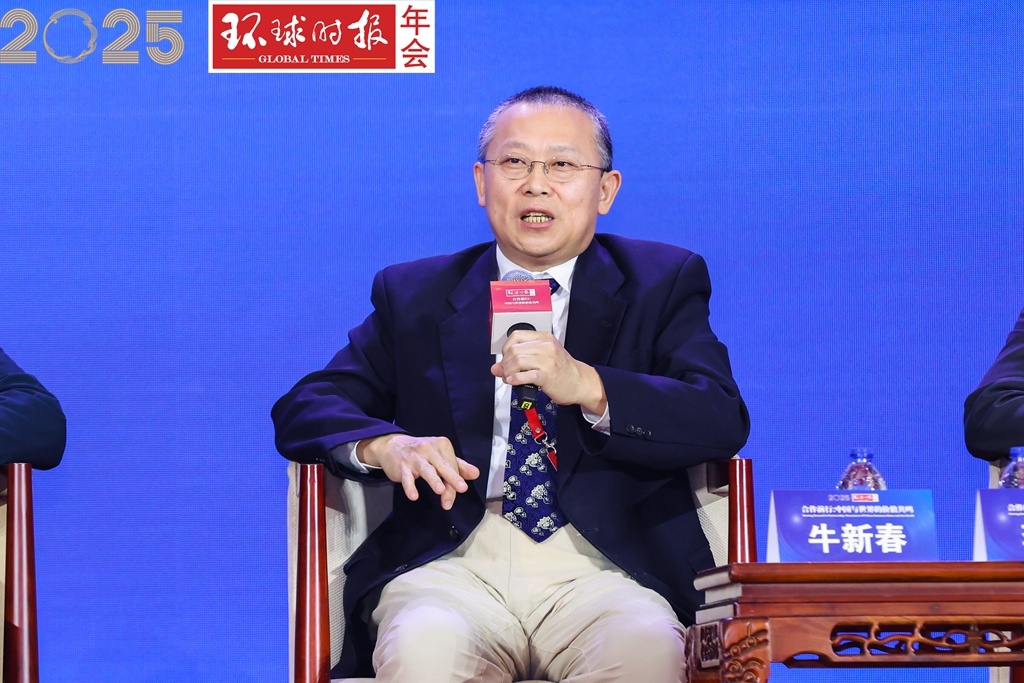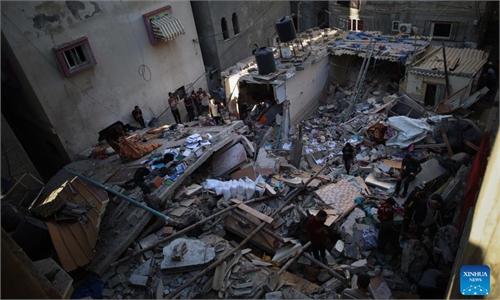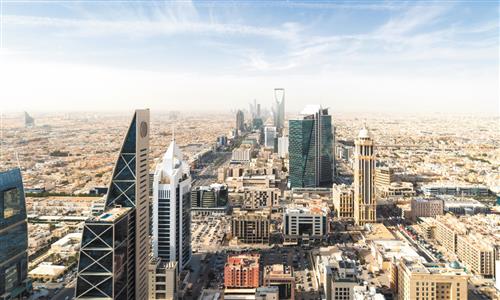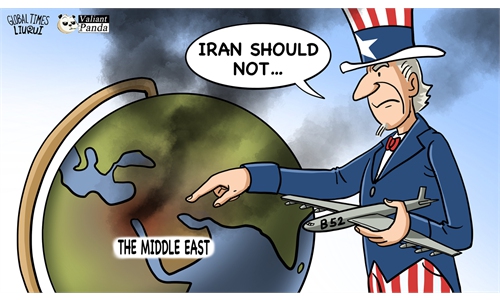The Middle East is currently undergoing a transition in power dynamics: Chinese scholar
The Global Times Annual Conference 2025, themed "Moving forward in Partnership: Resonance of Values between China and the World," took place in Beijing on Saturday. During a discussion on the topic "Addressing the Global Security Deficit: Hotspots and Solutions," Niu Xinchun, executive director of the China-Arab Research Institute of Ningxia University, stated that the Middle East is currently undergoing a transition in power dynamics, marked by a notable decline in Russian influence and the continuous expansion of US power.

Meanwhile, over the past year, the US has continuously increased its military presence in the Middle East, with the close US-Israel military cooperation reaching an unprecedented level, Niu said.
Second, in the regional landscape, the core conflict remains between Iran and Israel, and their power dynamics have undergone major changes. Iran and Iran-backed resistance forces have experienced a significant erosion of their strength and influence in the region , while Israel's military influence has expanded dramatically. At the same time, Turkey's influence has risen rapidly, positioning it as the most influential external power in the Middle East today, Niu said.
Third, the internal power dynamics in several Middle Eastern countries have also shifted. In Lebanon, Hezbollah's power has weakened due to changes in Syria's domestic political dynamics, causing an imbalance in Lebanon's internal power structure. Lebanon's upcoming January elections are expected to unveil the new political dynamics. Similarly, domestic power shifts are also expected in Yemen and Iraq, Niu stated.
"With these global, regional, and domestic power dynamic shifts, the Middle East now finds itself at a pivotal crossroads," Niu noted.

Niu Xinchun, executive director of the China-Arab Research Institute of Ningxia University Photo: GT
He explained that this transition is reflected in three key aspects. First, in the global power landscape, the balance of power between the US and Russia in the Middle East has shifted significantly, as shifts in Syria's political landscape have led to a sharp decline in Russia's influence in the Middle East.Meanwhile, over the past year, the US has continuously increased its military presence in the Middle East, with the close US-Israel military cooperation reaching an unprecedented level, Niu said.
Second, in the regional landscape, the core conflict remains between Iran and Israel, and their power dynamics have undergone major changes. Iran and Iran-backed resistance forces have experienced a significant erosion of their strength and influence in the region , while Israel's military influence has expanded dramatically. At the same time, Turkey's influence has risen rapidly, positioning it as the most influential external power in the Middle East today, Niu said.
Third, the internal power dynamics in several Middle Eastern countries have also shifted. In Lebanon, Hezbollah's power has weakened due to changes in Syria's domestic political dynamics, causing an imbalance in Lebanon's internal power structure. Lebanon's upcoming January elections are expected to unveil the new political dynamics. Similarly, domestic power shifts are also expected in Yemen and Iraq, Niu stated.
"With these global, regional, and domestic power dynamic shifts, the Middle East now finds itself at a pivotal crossroads," Niu noted.



